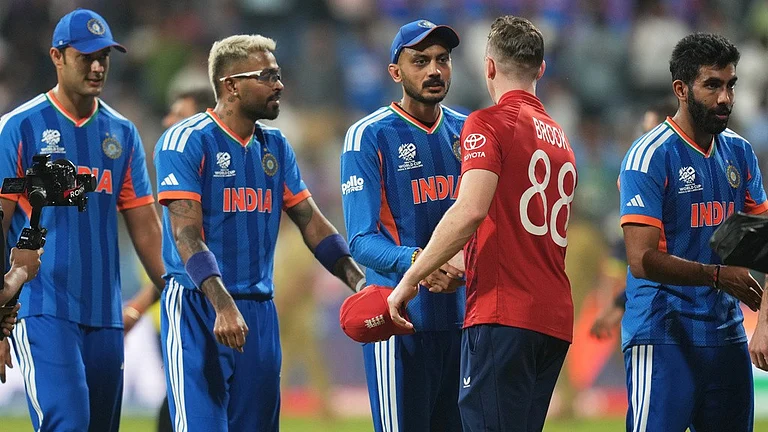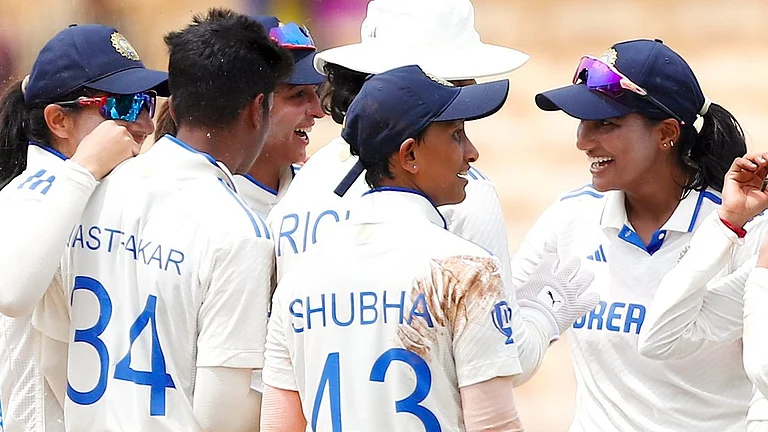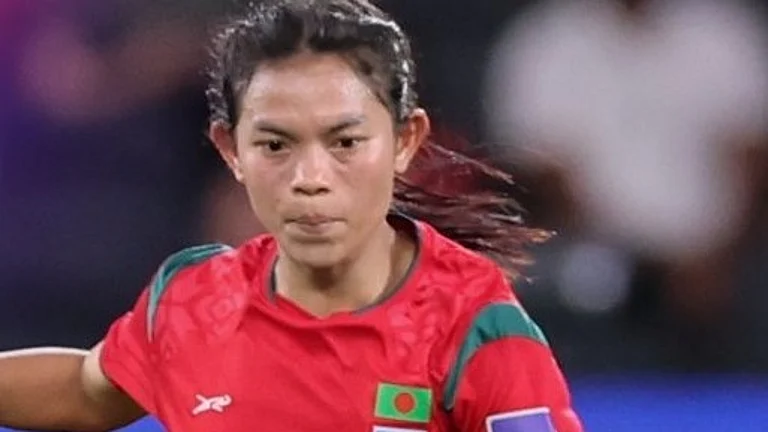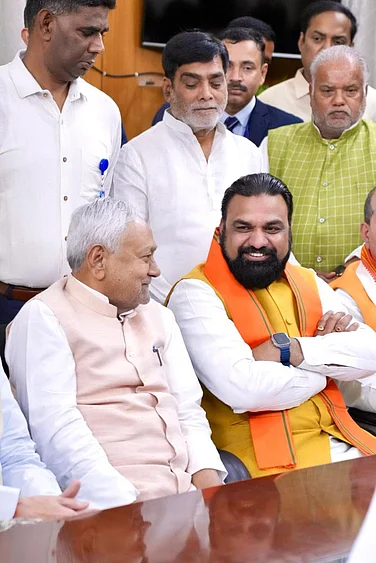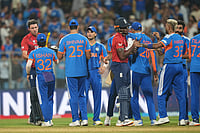The recent controversy surrounding a research paper by an Ashoka University faculty, which talked about alleged electoral manipulation in the 2019 Lok Sabha Election, has hit the political landscape with less than a year to go before the next General Election. Ashoka University's response to the research paper, written by Assistant Professor of Economics Sabyasachi Das, led to more controversy instead of calming the situation. The University’s response was described by some academicians as an act of cowardice and the BJP was equally critical of it, saying, “How can any University allow it.”
On August 1, the University issued a statement saying it is dismayed by the speculation and debate around a recent paper by one of its faculty members, Sabyasachi Das, and the university's position on its contents.
“As a matter of record, Ashoka University is focused on excellence in teaching and research across multiple disciplines, with a vision to build India's finest university, create social impact and contribute to nation-building,” the University statement reads.
However, in the next paragraph, it distances itself from Sabyasachi Das’s research, saying the University encourages its 160-plus faculty to carry out research, but does not direct or approve specific research projects by individual faculty members.
“Ashoka values research that is critically peer-reviewed and published in reputed journals. To the best of our knowledge, the paper in question has not yet completed a critical review process and has not been published in an academic journal,” it says.
“Social media activity or public activism by Ashoka faculty, students or staff in their individual capacity does not reflect the stand of the University,” the University said thus clearly wanting to run away from Sabyasachi Das's research.
Sabyasachi Das’s paper, which hinted at a possible manipulation by the BJP in the 2019 general election, generated a lot of social media debate with the opposition approving it and propagating it and the ruling party seeing it as a conspiracy against the present government.
The paper titled “Democratic Backsliding in the World’s Largest Democracy” published on July 25, in its abstract says, “This paper contributes to the discussion by documenting irregular patterns in the 2019 general election in India and identifying whether they are due to electoral manipulation or precise control, i.e., incumbent party’s ability to precisely predict and affect win margins through campaigning.”
“I compile several new datasets and present evidence that is consistent with electoral manipulation in closely contested constituencies and is less supportive of the precise control hypothesis. The manipulation appears to take the form of targeted electoral discrimination against India’s largest minority group – Muslims, partly facilitated by weak monitoring by election observers. The results present a worrying development for the future of democracy,” the paper reads.
The paper calls the Election Commission of India as “one of the most powerful election management body of bodies in the world.” However, it goes on to say, “In the past few years, the credibility of the ECI has been called into question, with allegations of bias in the scheduling of elections and arbitrary deletion of names of registered Muslim voters both favouring the ruling party.”
“The recent democracy reports of the V-Dem Institute highlight that various indicators of democracy in India, including the autonomy of the ECI, have been declining. Democracy Report (2021) has consequently classified India as an “electoral autocracy”. As the V-Dem report points out, the decline in the autonomy of the ECI was one of the important factors contributing to the reclassification of India’s regime type. Similarly, Freedom House has changed India’s status in 2021 from Free to Partly Free. The Supreme Court of India, in a recent judgement in 2023, acknowledged the dangers of a weak ECI and granted it significant autonomy and protection from executive overreach,” the paper reads.
“In light of these developments, I first document that the 2019 general election in India that reelected the incumbent party shows significant irregularities in the election data – the density of the incumbent party’s win margin variable exhibits a discontinuous jump at the threshold value of zero. It implies that in constituencies that were closely contested between a candidate from the incumbent party and a rival, the incumbent party (BJP) won disproportionately more of them than lost,” it says. “I do not find similar discontinuities in the previous general elections for either BJP or INC (Indian National Congress), the other major national party, as well as for state assembly elections held simultaneously with the 2019 general election and those held subsequently. Moreover, BJP’s disproportionate win of closely contested constituencies is primarily concentrated in states ruled by the party at the time of election.”
In his concluding remarks of the paper, Das says, “The paper documents irregularity in India’s 2019 general election data by showing that the incumbent party’s win margin distribution exhibits excess mass at zero, while no such pattern exists either in previous general elections or in state elections held simultaneously and subsequently. This implies that the incumbent party in 2019 won a disproportionate share of closely contested elections. Moreover, the pattern is concentrated in the states ruled by the incumbent party at that time.”
The paper further says, “I do not find that the incumbent party did greater door-to-door campaigning than other parties in constituencies barely won by it. On the other hand, I find evidence consistent with electoral manipulation at the stage of voter registration as well as at the time of voting and counting (turnout manipulation).”
“In both cases, the results point to strategic and targeted electoral discrimination against Muslims, in the form of deletion of names from voter lists and suppression of their votes during election, in part facilitated by weak monitoring by election observers,” the paper says. “The tests are, however, not proofs of fraud, nor does it suggest that manipulation was widespread,” it also says.
It says that proving electoral manipulation in a robust democracy is a significantly harder task that would require detailed investigation of electoral data in each constituency separately.
It says in view of the “depletion of trust in electoral processes across the globe and the exceptional integrity of India’s electoral institution in its past”, it presents “a worrying development with potentially far-reaching consequences for the world’s largest democracy”.
Elaborating on the paper, M R Sharan, Assistant Professor at the University of Maryland and author of “Last Among Equals: Power, Caste & Politics in Bihar’s Villages” applauds Das for “painstakingly combining lots of varied datasets: Election results from 1977-2019, EVM turnout data for 2019, Voter rolls (including name classifiers), National election surveys, data on counting observers.” “Overall, Das argues that his calculations suggest BJP gained about 11 additional seats by these types of manipulation. These are back-of-the-envelope calculations. This is NOT enough to change government formation. BJP won very comfortably in 2019. However, this is a cause for serious concern for anyone invested in electoral democracy in India. No one piece of evidence cited above may be enough to cause concern, but taken together - this should make us sit up and worry,” Sharan adds.
The research paper became an issue of political debate after Congress MP Shashi Tharoor commented on Sharan’s Twitter thread and said, “This thread offers a hugely troubling analysis for all lovers of Indian democracy. If the Election Commission and/or the Government of India have answers available to refute these arguments, they should provide them in detail. The evidence presented does not lend itself to political attacks on a serious scholar. E.g. the discrepancy in vote tallies needs to be explained since it can't be wished away.”
BJP MP Nishikant Dubey commented on the findings of the research paper and launched a scathing attack on Ashoka University and its response to Das’s research, saying, “It is fine to differ with the BJP on matters of policy but this is taking it too far…how can someone in the name of half-baked research discredit India’s vibrant poll process? How can any University allow it? Answers needed- this is not good enough a response.”
Amit Malviya, in charge of BJP's National Information & Technology and member of party’s national executive, said, “The research paper by Ashoka University’s Sabyasachi Das presents several datasets and dozens of charts as ‘evidence’ of what he calls ‘significant irregularities’ and ‘electoral fraud’. These are big claims. Does the evidence stack up? The answer is No…”
While the Congress and the BJP are applauding and condemning the paper respectively, it is the Ashoka University that is being criticised for its response.
“At the end of it, every private university is a profit-making enterprise — that cannot defy a vindictive government. With Ashoka University, of course, one would have expected a better spine — but a business cannot be risked for empty slogans like academic freedom,” says Jawhar Sircar, Rajya Sabha MP of Trinamool Congress.
Political and defence analyst Abhijit Iyer-Mitra, described the “research” as crap. He said it is the second time one of the professors of the University has put out bogus “research” in just one year. Mitra called for an immediate review of Ashoka’s accreditation.
However, defence analyst Sushant Singh described the Ashoka response to the paper in these words, “When not even asked to bend, they crawled.”



